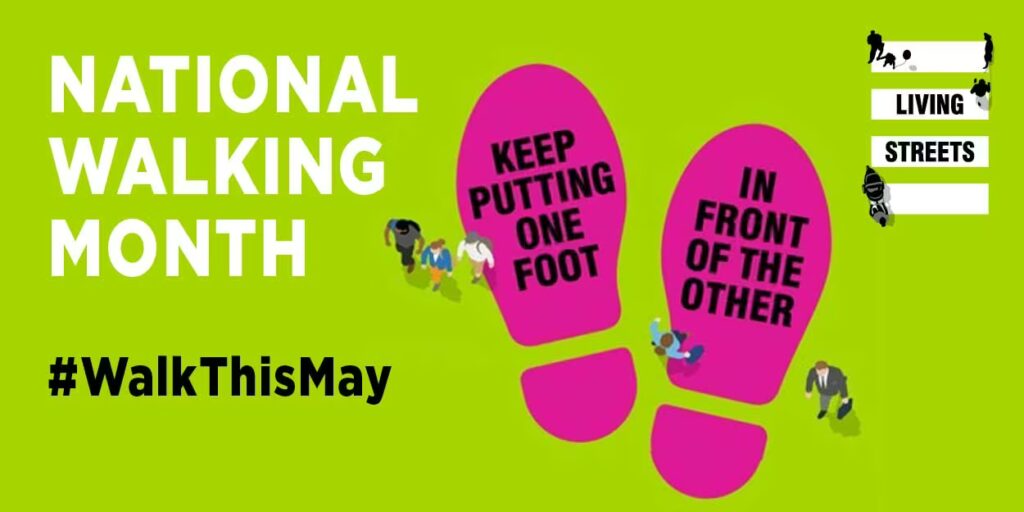Walking is a great form of exercise that doesn’t even have to feel like exercise. Physically, it raises your heart rate, and because it’s weight-bearing will benefit your muscles, bones and ligaments. Mentally, it can be good way to ‘get away from it all for a few moments’ to relieve stress and clear your mind.
Walking should also be a natural, injury-free activity that can be done at a relaxed, moderate, or fast pace depending on what you’re looking to achieve. But having said that, some walkers fail to move ‘naturally’ and can cause issues that may prevent them from walking on a regular basis.

What do I mean by that? Surely, everyone can walk ‘naturally’? Well, you’d be surprised. I’ve seen people who end up walking with stiff legs, and tight shoulders and backs because they believe walking faster has more benefit. Certainly, a brisk walk may deliver some extra health benefits, but not if you injure yourself in the process.
Powerwalking was a big thing not too long ago, but take a look at how many did it. Their shoulders are around their ears, their heads are pulled back, and their arms are bent and pump away as if there’s no tomorrow. And this is before we even get to the lower back and hips!
But… it doesn’t have to be like this. It’s possible to walk at a good pace while staying relaxed and poised to prevent undue stress on muscles and joints, while also keeping it an enjoyable activity.
Try these exercises to help you walk taller, faster, and without stress.
Exercise 1 – Pendulums
- Sit on the edge of a table so the whole of your upper legs down to the knees are in contact.
- Bring back your left leg until it is underneath the table and then let it go so it will swing forward. It is important to let it go and not to swing it forward yourself.
- Let alternate legs swing with minimal effort (just give them a little nudge) and think of each leg as a pendulum. If you are experiencing the need to make them swing by using your hamstrings or quadriceps, think of the space at the back of your knee joint and let go from there.
Let’s try a similar experiment with your arms.
- Stand and think of a line from the tip of your shoulders through the biceps, down the arm to your thumbs. Or just think ‘long arms’.
- As with the legs, see if you can get your arms swinging straight and by your side with a minimal effort without lifting your shoulders.
- Now let your arms bend at the elbow, place your thumb lightly on your index finger, keep your fingers relaxed and again swing your arms without the shoulders lifting. Your hands should be relaxed, neither clenched into a fist or fingers held straight.
Exercise 2 – One Small Step
- Stand with your feet below your hip joints and let your arms rest by your side.
- Think of taking a step forward but do not start to move. Observe what you want to do to get ready to step forward. Do you lean to one side? Are you starting to fall forward?
- Now think about light coming from your centre and flowing along your arms, up your spine and through the top of your head.
- Keep this thought going and release your knee forward away from your hip and imagine ‘falling up’ as you step forward.
This is about appropriate timing and minimal effort. To take a step forward you have to release and allow the movement to start with only the slightest effort to let the knee bend – like a car on a hill releasing its brake. Just as with the Pendulums exercise earlier, this will help you to let your legs swing when walking.
And when you want to up the pace a little, just let your arms swing a little quicker and you’ll find your legs will match the pace – without the effort.
So, why not give this a go on your next walk. Stay relaxed and tall and just let your limbs swing with minimal effort. You’ll find with practice, you can walk further and faster, but with less wear and tear. After all, you take up an activity to get fitter and NOT to get injured.
Roy Palmer is our Alexander Technique Teacher at the centre. If you’d like to find out more, please contact us today.


